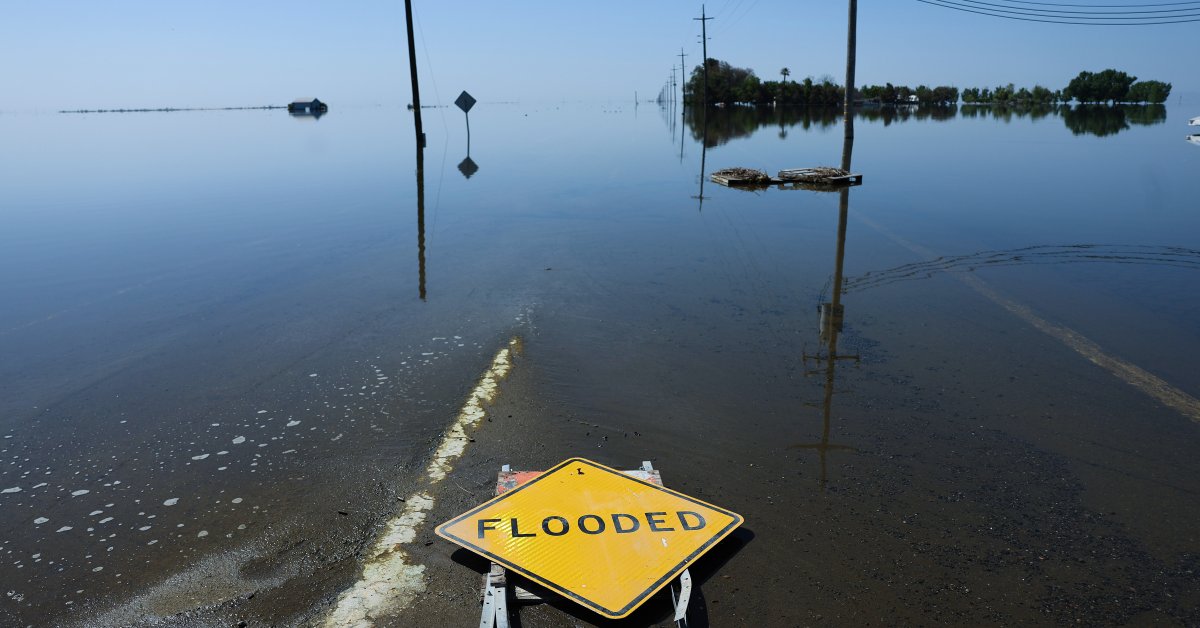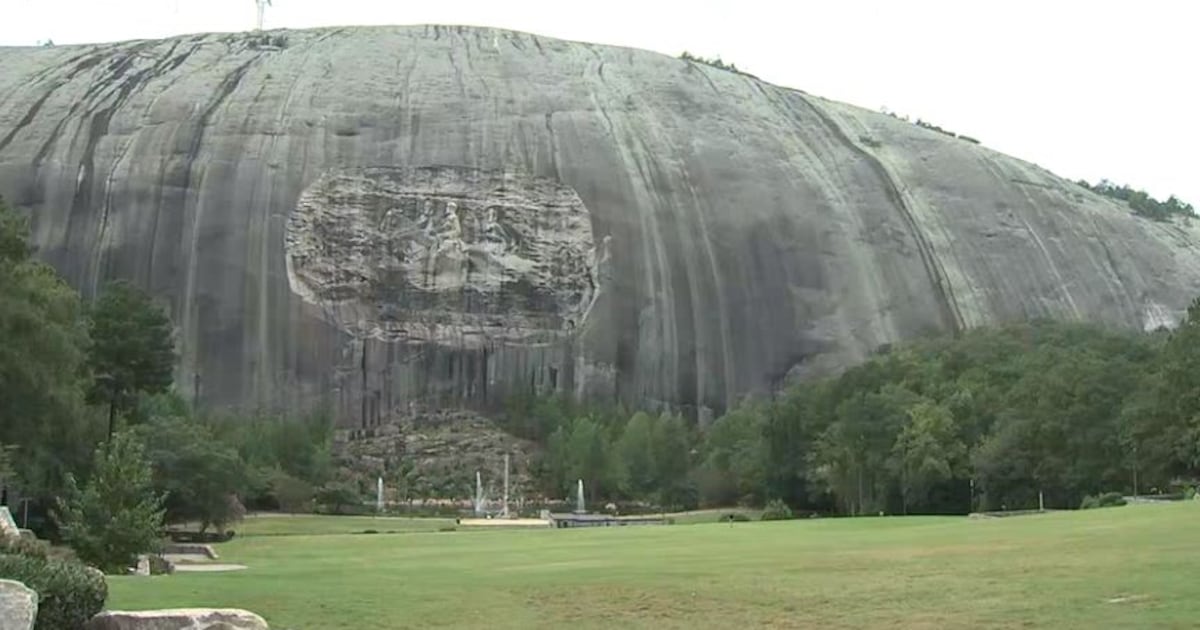Climate Change And The Frequency Of Extreme Weather: Are 100-Year Events Becoming The New Normal?

Welcome to your ultimate source for breaking news, trending updates, and in-depth stories from around the world. Whether it's politics, technology, entertainment, sports, or lifestyle, we bring you real-time updates that keep you informed and ahead of the curve.
Our team works tirelessly to ensure you never miss a moment. From the latest developments in global events to the most talked-about topics on social media, our news platform is designed to deliver accurate and timely information, all in one place.
Stay in the know and join thousands of readers who trust us for reliable, up-to-date content. Explore our expertly curated articles and dive deeper into the stories that matter to you. Visit Best Website now and be part of the conversation. Don't miss out on the headlines that shape our world!
Table of Contents
Climate Change and the Frequency of Extreme Weather: Are 100-Year Events Becoming the New Normal?
The world is witnessing a dramatic increase in the frequency and intensity of extreme weather events. From devastating hurricanes and wildfires to crippling droughts and record-breaking heatwaves, the consequences are becoming increasingly evident and costly. But is this simply a matter of bad luck, or is climate change fundamentally altering the odds of experiencing once-in-a-century events? The answer, supported by a growing body of scientific evidence, points to a disturbingly clear conclusion: 100-year events are becoming increasingly common, and climate change is a primary driver.
The Shifting Baseline: Redefining "Extreme"
For decades, the probability of a "100-year event" – a catastrophic weather phenomenon with a 1% chance of occurring in any given year – was used as a benchmark for risk assessment in infrastructure planning and disaster preparedness. However, this static model is failing to keep pace with the rapidly changing climate. What was once considered exceptionally rare is now occurring with alarming regularity.
This shift is not merely anecdotal. Numerous studies show a clear correlation between climate change and the increased frequency of extreme weather. The rising global temperatures, fueled by greenhouse gas emissions, are altering atmospheric dynamics, leading to:
- More intense rainfall: Warmer air holds more moisture, resulting in heavier downpours and increased flood risks. This is clearly visible in recent devastating flood events across the globe.
- Prolonged and severe droughts: Higher temperatures accelerate evaporation, leading to drier conditions and increased wildfire risk. The devastating Australian bushfires of 2019-2020 and the ongoing drought in the American West serve as stark examples.
- Stronger hurricanes and typhoons: Warmer ocean waters provide the energy for more powerful storms, leading to increased wind speeds, storm surges, and catastrophic damage. The increased intensity of recent hurricanes is a direct consequence of this effect.
- More frequent and intense heatwaves: Rising global temperatures are leading to longer and more intense heatwaves, posing significant risks to human health and infrastructure.
The Scientific Consensus: Climate Change is the Culprit
The Intergovernmental Panel on Climate Change (IPCC), the leading international body for assessing climate change, has repeatedly confirmed the link between climate change and extreme weather events. Their reports detail a clear trend of increasing frequency and intensity across various types of extreme weather, providing irrefutable evidence of the crisis we face. [Link to IPCC report].
Furthermore, attribution science – a field dedicated to quantifying the role of climate change in specific weather events – is increasingly able to pinpoint the influence of human-caused warming on individual extreme weather occurrences. This allows for a more precise understanding of the extent to which climate change is exacerbating these events.
Adapting to the New Normal: A Call for Urgent Action
The evidence is overwhelming: we can no longer rely on outdated probability models to assess extreme weather risks. The "100-year event" is becoming far more frequent, demanding a fundamental shift in our approach to infrastructure planning, disaster preparedness, and climate mitigation.
This necessitates a multi-pronged approach:
- Investing in climate-resilient infrastructure: Designing and building infrastructure capable of withstanding more frequent and intense extreme weather events is crucial.
- Improving early warning systems: Effective early warning systems can save lives and mitigate damage by providing timely information about impending extreme weather.
- Implementing stringent climate mitigation policies: Reducing greenhouse gas emissions through transitioning to renewable energy, improving energy efficiency, and adopting sustainable practices is essential to slowing the pace of climate change.
Ignoring the reality of this changing climate will only lead to more devastating consequences. The time for action is now. We must adapt to the new normal and work collaboratively to mitigate the impacts of climate change before it's too late. Learn more about how you can contribute to climate action [Link to relevant environmental organization].

Thank you for visiting our website, your trusted source for the latest updates and in-depth coverage on Climate Change And The Frequency Of Extreme Weather: Are 100-Year Events Becoming The New Normal?. We're committed to keeping you informed with timely and accurate information to meet your curiosity and needs.
If you have any questions, suggestions, or feedback, we'd love to hear from you. Your insights are valuable to us and help us improve to serve you better. Feel free to reach out through our contact page.
Don't forget to bookmark our website and check back regularly for the latest headlines and trending topics. See you next time, and thank you for being part of our growing community!
Featured Posts
-
 Legal Showdown Ubers Ride Sharing Success Challenged By Patent Lawsuit
Jun 01, 2025
Legal Showdown Ubers Ride Sharing Success Challenged By Patent Lawsuit
Jun 01, 2025 -
 F1 Spain Grand Prix 2024 Live Race Coverage And Results
Jun 01, 2025
F1 Spain Grand Prix 2024 Live Race Coverage And Results
Jun 01, 2025 -
 Homicide Investigation Underway After Burned Body Discovered At Stone Mountain Park
Jun 01, 2025
Homicide Investigation Underway After Burned Body Discovered At Stone Mountain Park
Jun 01, 2025 -
 Tensions Rise Homeland Security And Rep Nadlers Office Clash At Ny Federal Building
Jun 01, 2025
Tensions Rise Homeland Security And Rep Nadlers Office Clash At Ny Federal Building
Jun 01, 2025 -
 Commencement Speakers Plea For Harvards Resilience Wins Graduate Support
Jun 01, 2025
Commencement Speakers Plea For Harvards Resilience Wins Graduate Support
Jun 01, 2025
